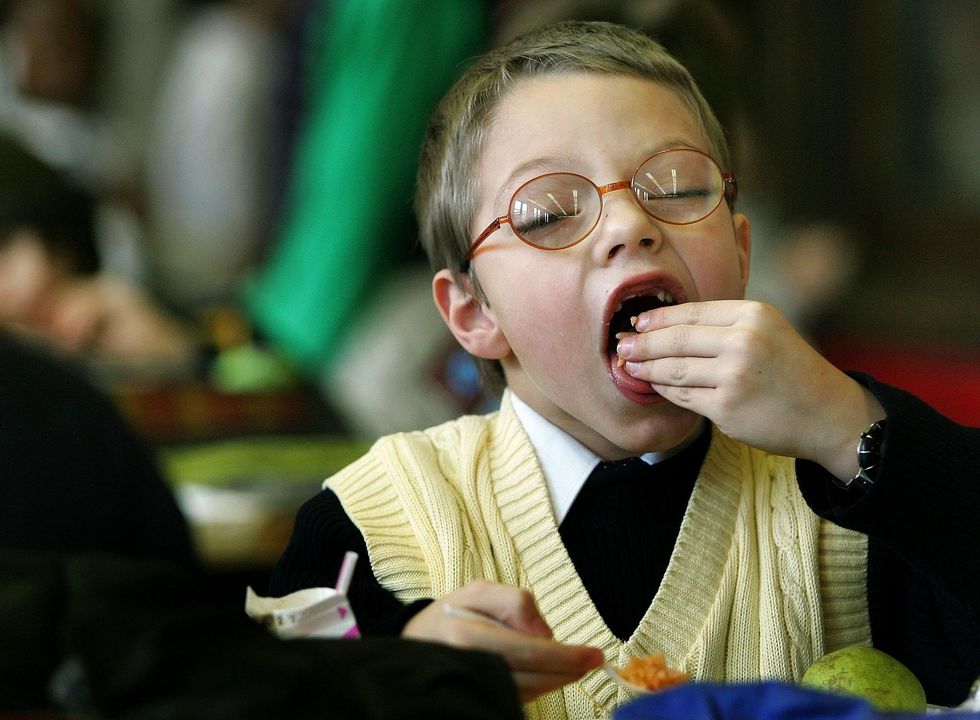
Lunch shaming' is now outlawed in the state of Washington.
(Tim Boyle/Getty Images)

Washington state has stepped in to stop certain practices of "lunch shaming" toward students in school cafeterias.
When kids' accounts run dry and they can't pay, schools use various methods of notifying parents — including throwing away the student's hot lunch and replacing it with lesser items (often a piece of fruit or slice of bread and milk), stamping the child's hand, or pinning a note to their shirt so it can't be missed.
But stories of kids being humiliated in front of their peers has prompted a campaign to leave students out of the equation. Termed as "lunch shaming," the state of Washington has now passed legislation making such practices illegal.
The bill was signed into law on Tuesday by Governor Jay Inslee, and requires schools to notify parents without making a spectacle in the cafeteria. A similar bill is currently being considered in Minnesota; New Mexico banned the practices last year.
Some schools take further measures in the instance of a student having insufficient funds, like restricting school activities or prohibiting high school seniors from participating in their graduation ceremony. Others allow grace periods or grant students the option to charge a number of meals, giving parents more time to replenish accounts.
In 2015, The New York Times reported that over half the students in public schools qualified for free or reduced lunches, but noted that not all who qualify necessarily live in poverty. Experts say it's the kids "right above that cutoff line" for free lunch who are most often in such situations.
Regardless, the delicate method of collecting unpaid meal tabs from their parents has become a difficult task for cash-strapped school districts. Collection agencies are often called in by districts when balances remain unpaid and parents are unresponsive, which has also been an unpopular action.
"Some families have the money and just don't pay," school cafeteria worker Matt Antignolo told CNN Money last year. But affirmed that taking away a kid's lunch is "the worst part of the job. Nobody likes it."
To bridge the gap, parents and educators have taken measures into their own hands in several districts, launching crowdsourcing campaigns to wipe out the problem temporarily.
Last year, Rob Solomon, chief executive of GoFundMe told The Times that the site had roughly 30 meal debt campaigns running at the time.
In the meantime, a number of school cafeteria workers have been fired or quit when asked to implement stringent policies they deemed as cruel to the kids. In 2016, Stacy Koltiska was working at the register of an elementary school cafeteria in the Canon-McMillan, Pennsylvania school district when a little boy approached with his tray and she had to refuse him his meal and replace it.
Koltiska resigned a week later. She said, "As a Christian, I have an issue with this. It's sinful and shameful is what it is."